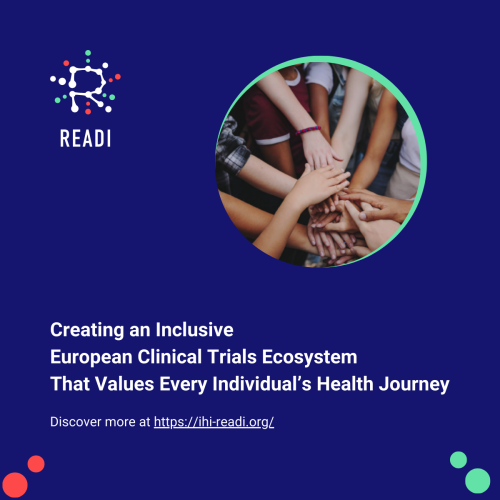READI Project Launches to Enhance Patient Representativeness and Inclusion in European Clinical Research

The pioneering project READI (Research in Europe and Diversity Inclusion) a public-private partnership funded by the Horizon Europe Innovative Health Initiative (IHI) and driven by meaningful co-leadership with patients, officially launched on January 16. Its purpose is to promote a less fragmented and more democratic ecosystem for clinical studies (CS) by engaging key stakeholders in the process of including underserved and underrepresented populations in CS.
The consortium is coordinated by the Servicio Madrileño de Salud (SERMAS), through Hospital Universitario La Paz, as the Project Coordinator, Novartis as the Project Lead, and supported by The Synergist as the Digital & Sustainability Coordinator. This project brings together a highly multidisciplinary consortium of 73 organizations from 18 different countries. The six-year project will have a budget of €66.8 million, of which €31.5 million is requested to be funded by IHI, and €34.2 million is committed by industry and contributing partners.
READI’s main objective is to enhance the representativeness of underserved populations in clinical studies by fostering a more cohesive and integrated clinical study ecosystem, with the ambition of achieving full inclusion by placing the patient at the center. It will actively connect key stakeholders involved with underserved and underrepresented communities, and equip them with the necessary tools, training programs, and strategies essential for recruiting and retaining underserved and underrepresented patients in clinical studies. To demonstrate READI’s capacity to broaden representation in clinical research, the approaches will be tested in real-world pilot clinical and non-clinical use cases, supported by industry partners.
The work will include mapping the characteristics of these populations using Real-World Data (RWD), developing standardized descriptors for their inclusion, collecting insights and informing regulatory and Health Technology Assessment (HTA) policies to enhance representativeness in clinical studies.
READI will help underserved and underrepresented communities overcome barriers to clinical study participation, such as lack of information or awareness, mistrust, poor communication, geographic limitations, and prejudice. In addition, READI will design and implement a patient-centered, open, and innovative digital platform. This platform will improve access to clinical study information and READI tools, while fostering patient connections with established communities.
Ultimately, this initiative will lead to more innovative science and will improve inclusive participation in clinical trial research thereby promoting health equity in Europe.


